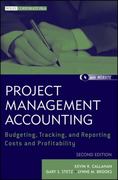Question
https://www.journalofaccountancy.com/issues/2012/jul/20125104.html Analysing the article? Highlights of audit research Studies examine auditors' industry specialization, auditor-client negotiations, and executive confidence regarding earnings management. BY CYNTHIA E. BOLT-LEE,
https://www.journalofaccountancy.com/issues/2012/jul/20125104.html
Analysing the article?
Highlights of audit research
Studies examine auditors' industry specialization, auditor-client negotiations, and executive confidence regarding earnings management.
BY CYNTHIA E. BOLT-LEE, CPA AND D. SCOTT SHOWALTER, CPA
June 30, 2012
RELATED
7 minutes ago
SBA clarifies deferral period for PPP loan payments
October 5, 2020
PPP borrowers, lenders get change-in-ownership guidance from SBA
September 29, 2020
How auditors can enhance the reliability of non-GAAP reporting
TOPICS
Management Accounting
Auditing
Highlights of audit research
Editor's note: This article is part of a series that samples accounting research and distills key findings for busy practitioners and preparers. The summaries explain the implications of a wide range of research and give CPAs an opportunity to apply results to their day-to-day activities. Readers interested in more detail should read the full text of each article to explore the expanded literature, hypotheses, research processes, statistical analyses, supporting theories, and conclusions.
Auditors have become the focus of several recent academic studies. The academy has centered its lens on auditors who examine financially distressed companies and on auditor-client negotiations. New research also examines executive overconfidence as a cause of earnings mismanagement. This article summarizes the findings and observations from recently published research in prominent accounting and finance journals.
The Impact of Industry Specialization on Auditor Judgment
Users of financial statements consider going-concern opinions a forewarning of potential bankruptcy. Yet, according to several studies, fewer than 50% of companies receive this warning prior to filing for bankruptcy.
Research published by Liesbeth Bruynseels, W. Robert Knechel, and Marleen Willekens continues the debate about the likelihood that a soon-to-be-bankrupt company will receive a going-concern report. Their research, published in the February 2011 issue of Auditing: A Journal of Practice & Theory, explores how industry specialization and audit methods affect an auditor in evaluating the mitigating actions taken by management of financially distressed companies.
The article, "Auditor Differentiation, Mitigating Management Actions, and Audit-Reporting Accuracy for Distressed Firms," provides insightful observations related to auditors' industry expertise and their approach when evaluating audit evidence.
The research examined 148 companies that filed for bankruptcy protection between 1999 and 2002 and that also exhibited prior indications of financial distress, such as negative retained earnings, negative operating cash flow, or negative net income. The companies were from 18 industrial classifications within manufacturing. The study reveals that an auditor with industry specialization would be more likely than a nonindustry specialist to issue a going-concern opinion. Industry specialization was defined as a firm having more than 25% of the market share within a specific manufacturing industry. Further, the research shows that a client who initiates strategies to temporarily improve performance, such as raising short-term cash, is less likely to receive a going-concern opinion from both the specialist and the nonspecialist auditor.
The authors confirm previous research on the importance of auditor industry specialization. Further, their results show that when confronted with a company facing financial distress, auditors should apply caution when management takes short-term operating initiatives. The research indicates that an auditor's interpretation of short-term, focused operating initiatives can easily lead someone to miss a company's serious financial difficulties. The research also underscores the importance for auditors to focus on longer-term strategic management initiatives when evaluating the financial distress of a company, rather than shorter-term initiatives that provide only temporary relief from the problems.
Auditor-Client Negotiations
Researchers frequently study auditor-client relationships. The negotiation process is an area of particular importance in these interactions. Whether the issue is determining the appropriate application of GAAP, a proposed audit adjustment, or the audit opinion itself, the auditor's persuasiveness affects not only the financial reporting process, but also the overall relationship between auditor and client.
"The Relative Effectiveness of Persuasion Tactics in Auditor-Client Negotiations," an article by Stephen Perreault and Thomas Kida, published in the November 2011 edition of Accounting, Organizations and Society, centered on the effectiveness of different types of persuasive communication.
The authors, recognizing the dual role of an auditor to attest to the fair presentation of the financial statements while maintaining strong client relations, build on prior research addressing this conflicting responsibility. The study examines a variety of communicatio
Step by Step Solution
There are 3 Steps involved in it
Step: 1

Get Instant Access to Expert-Tailored Solutions
See step-by-step solutions with expert insights and AI powered tools for academic success
Step: 2

Step: 3

Ace Your Homework with AI
Get the answers you need in no time with our AI-driven, step-by-step assistance
Get Started


